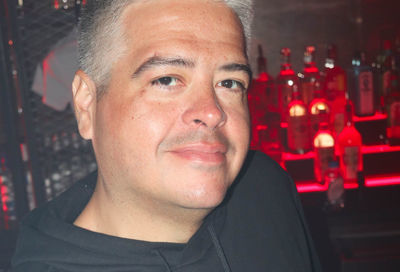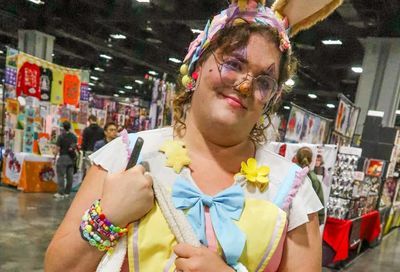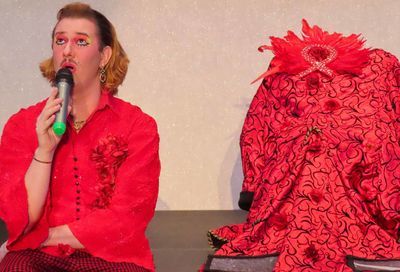Barriers to Health
Lesbian healthcare could be negatively impacted by recent anti-gay marriage laws
Ironically, a few weeks after Melissa Etheridge’s breast cancer diagnosis helped put “a lesbian face” on cancer, the same-sex marriage backlash as witnessed in the recent elections has had the side effect of negatively affecting lesbians’ access to health care.
The language in nine of the 13 state amendments passed in 2004 denying marriage to same-sex couples could be interpreted to go beyond marriage to implicate civil unions, domestic partnerships and other legal arrangements between unmarried couples, according to Carrie Evans, state legislative lawyer for the Human Rights campaign. The nine states are Arkansas, Georgia, Kentucky, Louisiana, Michigan, North Dakota, Oklahoma, Ohio and Utah.
Also in 2004, Virginia passed legislation that goes further than these amendments and could potentially affect private contracts between individuals of the same sex — partnership agreements, co-parent agreements and powers of attorney, among others.
Before any of this legislation took effect, lesbians were less likely to go to the doctor and thus more likely to be diagnosed with late-stage cancer and other serious diseases. Those who do seek medical care often pay the price. Take Micki and Peggy, a lesbian couple in their forties who have been together for 13 years and live in a small city in Virginia.
While Micki continues to be treated for breast cancer, the hospital staff refuses to treat Peggy as her spouse, even though the couple named each other on their health proxies and power of attorney. “There have been several of Micki’s surgeries when they have not come out to tell me what’s going on,” she explains. “So I sit for hours thinking she is still under when, in fact, she has been in recovery for hours or I have to find out where they’ve put her and wait outside the door.”
Peggy, who herself is a nurse, adds, “I have had to do all of Micki’s care in the hospital sometimes because the nurse working that shift didn’t want to touch her, simply because she’s a lesbian.”
Thousands of lesbians each year share Peggy and Micki’s predicament. Many have to deal with medical professionals’ insensitivity about their sexual orientation when they are at their most vulnerable or deal with the stresses of being in the closet. At first, Peggy said she tried passing herself off as Micki’s sister, but couldn’t keep up the charade.
Compounding the problem is the fact that lesbians are more negatively affected by women’s lower earning power (76 percent of what men earn) than their heterosexual counterparts. There is also a dearth of data on how many women actually identify as lesbian, let alone what their health status and health risks are.
On the bright side, D.C.’s Mautner Project, the U.S.’s only national lesbian health organization, has teamed up with the CDC’s National Breast and Cervical Cancer Early Detection Program, targeted to underserved women in all 50 states.
And there is a smattering of lesbian/feminist health projects throughout the country, including Mautner and the Whitman Walker Clinic’s Lesbian Services Program, which tend to offer such services as support groups and help with household chores while women are in treatment, and conduct sensitivity training for health workers. They provide a safe space to discuss post-treatment intimacy problems or share information about lesbian-sensitive doctors. These projects need to be better funded so they can reach every lesbian in the U.S.
Activism around lesbian health has come from some unexpected quarters. Peggy and Micki, for instance, are starting a lesbian cancer support group in their area. And I, who before being diagnosed with breast cancer in 2002 was not very political, co-founded the New York City Lesbian Cancer Support Consortium after I couldn’t find a support group in the city geared to lesbians. Only by being out can lesbians hope to get the services they need.
Etheridge has requested that in lieu of gifts, her fans send a donation to the Dr. Susan Love Research Foundation, whose namesake is a lesbian breast surgeon. Its goal is to end breast cancer in the next ten years. Wouldn’t it be nice if in that timeframe the barriers to health care faced by lesbians could be removed? Their lives depend on it.
Michele Forsten is the second place winner of the 2004 National Lesbian and Gay Journalists Association’s Sarah Pettit Memorial Prize for Excellence in LGBT Media.
Support Metro Weekly’s Journalism
These are challenging times for news organizations. And yet it’s crucial we stay active and provide vital resources and information to both our local readers and the world. So won’t you please take a moment and consider supporting Metro Weekly with a membership? For as little as $5 a month, you can help ensure Metro Weekly magazine and MetroWeekly.com remain free, viable resources as we provide the best, most diverse, culturally-resonant LGBTQ coverage in both the D.C. region and around the world. Memberships come with exclusive perks and discounts, your own personal digital delivery of each week’s magazine (and an archive), access to our Member's Lounge when it launches this fall, and exclusive members-only items like Metro Weekly Membership Mugs and Tote Bags! Check out all our membership levels here and please join us today!



















